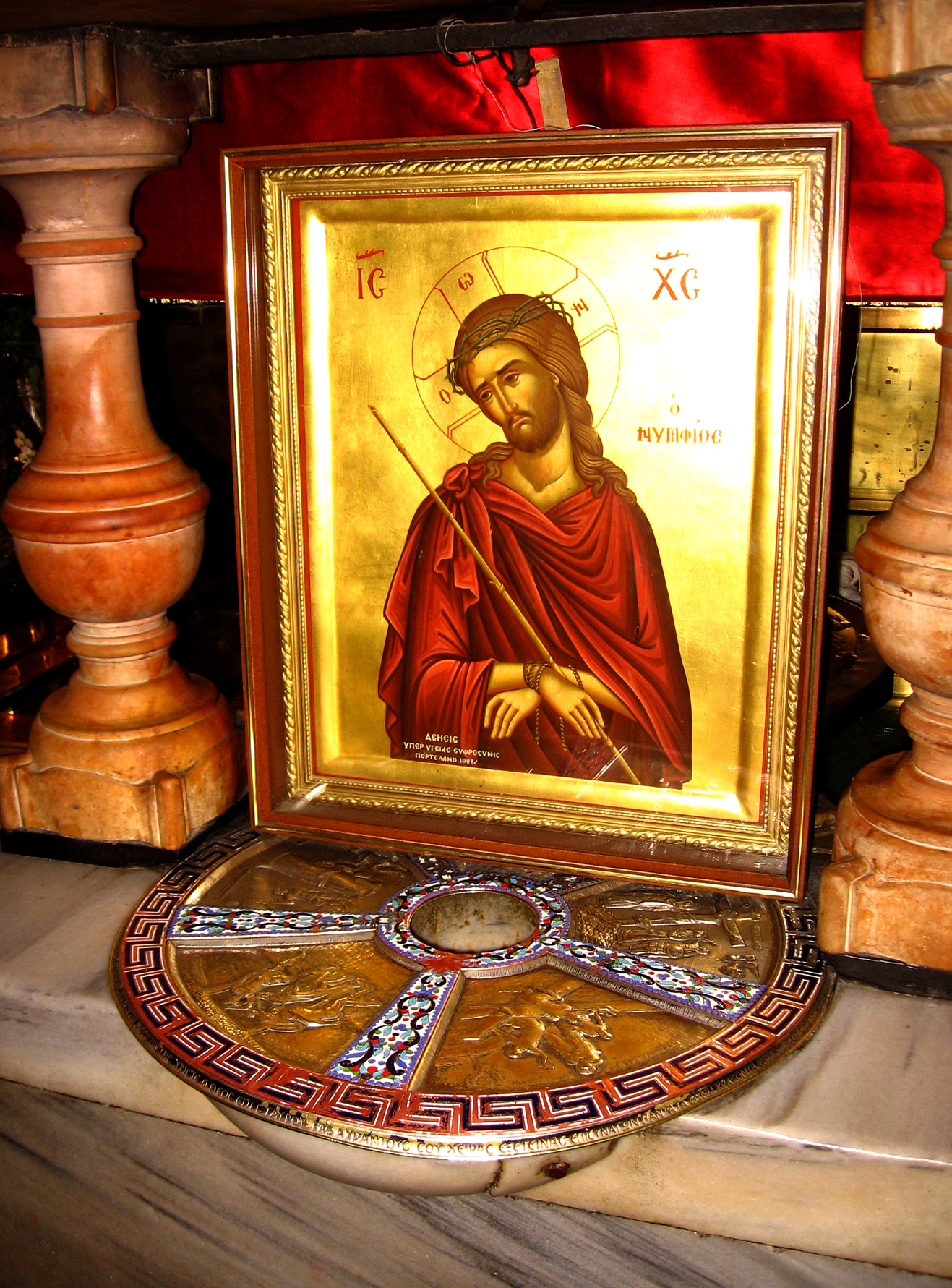Liturgy of the Lord’s Passion (02 Apr 2010)
Is 52. 13-53. 12; Ps 31; Hb 4. 14-16; 5. 7-9; Jn 18. 1-19.42
Homily of Fr. Paul Panaretos, S.J.
Noticing Ourselves
Our risen Messiah Jesus died and rose and dies no more. Yet on Good Friday we recall with singular devotion his passion as part of his paschal mystery. Because Jesus dies no more we remember his death; we do no reenact it. We hope to be transformed by it. The Catechism of the Catholic Church acknowledges transforma-tion but not at the expense of ignoring suffering:
In the Christian life, the Holy Spirit himself accomplishes his work by mobilizing the whole being, with all its sorrows fears and sadness, as is visible in the Lord’s agony and passion. In Christ human feelings are able to reach their consummation in charity and divine beatitude.1
The point is not our suffering but our transformation, Holy Spirit “mobilizing [one’s] whole being...in charity,” the divine goodness.
 Mobilizing is an apt word for our response to Jesus’ cross. Consider this. The cross was the instrument for capital punishment in the Roman controlled areas of the Mediterranean world. The sight of one was surely paralyzing. After Jesus’ death vanquished death, the cross became for Christians their emblem of life and hope in the new creation. Indeed Jesus’ cross supplanted all others and transformed itself into the doorway of that new creation, its new tree of life.
Mobilizing is an apt word for our response to Jesus’ cross. Consider this. The cross was the instrument for capital punishment in the Roman controlled areas of the Mediterranean world. The sight of one was surely paralyzing. After Jesus’ death vanquished death, the cross became for Christians their emblem of life and hope in the new creation. Indeed Jesus’ cross supplanted all others and transformed itself into the doorway of that new creation, its new tree of life.
This in no way cancels our meditation on the cross and the passion of Jesus. Yet, it is not a reenactment but a way in to our own transformation. I could be mistaken, but I doubt people venerate Jesus’ cross in such numbers on Good Friday because they intuit it to be a historical reenactment or reminiscence. Perhaps they respond to the annual event of Good Friday much the way so many people respond to Ash Wednesday each year and get signed with ashes to begin Lent. They desire to grow in the life of Jesus’ Spirit and in the Christian life. The goal is to open ourselves to Messiah Jesus and to open ourselves to being healed and renewed.
So today keep your focus on Jesus. Note your response to him. His passion and the Stations of the Cross offer us vignettes of people responding in each one’s way: Pilate condemned Jesus; Jesus’ mother was silent; women wept; Simon of Cyrene shouldered Jesus’ cross; Veronica wiped his face; soldiers stripped and crucified him.
Being close to Jesus’ passion allows us to enter those vignettes with sharper feeling and deeper emotion with great reward: it allows us to discover ourselves in our own vignettes with Jesus, who creates and redeems us. When we notice ourselves honestly and more clearly we allow Jesus’ Spirit to transform our human feelings and energy and mobilize us as more faithful apostles of Jesus’ faith, hope and love in our world.
___________
- The Catechism of the Catholic Church, 1769.
__________________________________________________________________
Wiki-image by adriatikus of an icon Jesus suffering is used according to the Creative Commons Attribution ShareAlike 3.0 license.
No comments:
Post a Comment